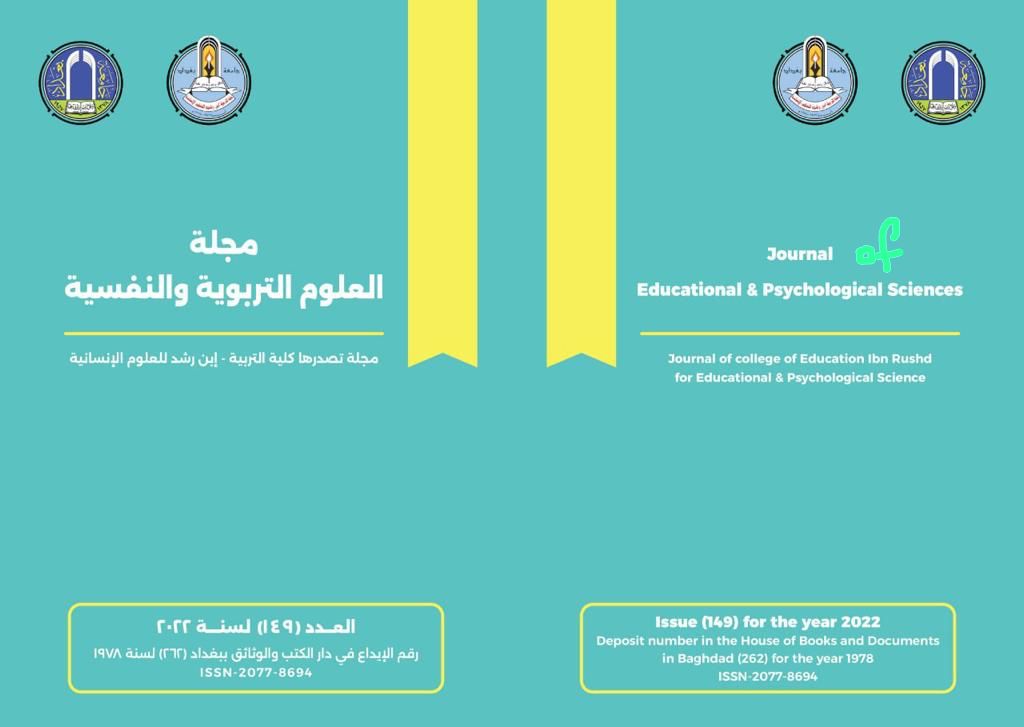Abstract
The current study aimed to explore the community’s beliefs towards mental health services and counselors/ psychiatrists. In addition, the study attempts to explore the level of public stigma towards the mentally ill people and the possibility of predicting the public stigma through the community’s beliefs towards mental health services. It also examined the existence of statistical differences in these variables based on demographic variables (i.e., gender, previously getting a psychological disorder, the contact with a person with a psychological disorder, and the benefit from mental health services). Also, the study discovered the reasons behind the avoidance of seeking mental health services in a group of the study’s sample. The study utilized the correlational descriptive design. The study population was represented in community members whose ages ranged between 20 to 40 years old and who live in Muscat governorate. The study sample consisted of 315 individuals (31.7 males and 68.3% females). Three measures were used to collect the data: (1) Beliefs About Psychological Services (BAPS), (2) Public Stigma Towards Mentally Ill People, and (3) The Reasons Behind Not Seeking Mental Health Services Scale. The study findings showed that there are high levels of the study sample’s beliefs towards mental health services in all the three dimensions and low level of public stigma. Moreover, the results indicated that the “intent” and the “stigma tolerance” dimensions were able to negatively predict the public stigma. Also, some statistically significant differences were found in public stigma and on beliefs towards the mental health services based on the variables related to the study sample. The findings were discussed based on the nature and culture of Omani people. The study recommended executing some counseling programs that targets Omani people of different age groups to encourage seeking counseling and mental health services when needed.
Keywords
Beliefs
community
mental health
mentally ill people
public stigma
Abstract
هدفت الدراسة للتعرف على معتقدات أفراد المجتمع نحو خدمات الصحة النفسية والأخصائي/الطبيب النفسي، بالإضافة للكشف عن مستوى انتشار الوصمة المجتمعية نحو ذوي الاضطرابات النفسية وإمكانية التنبؤ بها من خلال معتقدات أفراد المجتمع نحو خدمات الصحة النفسية، كما أنها هدفت إلى الكشف عن وجود فروق في هذه المتغيرات وفقا لبعض المتغيرات الخاصة بأفراد العينة (الجنس، والإصابة السابقة باضطراب نفسي، والصلة بأحد الأشخاص ذوي الاضطرابات النفسية، والاستفادة من خدمات الصحة النفسية). كما تعرفت الدراسة على أسباب عزوف أفراد العينة. اعتمدت الدراسة الحالية على المنهج الوصفي المسحي، وبلغت عينة الدراسة 315 فردا من أفراد المجتمع (31.7% ذكور و68.3% إناث)، وقد تم استخدام ثلاثة مقاييس هي: مقياس المعتقدات نحو خدمات الصحة النفسية (Beliefs About Psychological Services, BAPS) ، ومقياس الوصمة المجتمعية نحو ذوي الاضطرابات النفسية (Public Stigma Towards Mentally ill People)، ومقياس أسباب العزوف عن خدمات الصحة النفسية. أشارت نتائج الدراسة إلى وجود مستوى مرتفع في جميع أبعاد معتقدات أفراد المجتمع نحو خدمات الصحة النفسية، ووجود مستوى منخفض من الوصمة المجتمعية. وأشارت النتائج إلى إمكانية التنبؤ العكسي بالوصمة المجتمعية من خلال بعدي النية للاستفادة من خدمات الصحة النفسية، وتجاوز الوصمة، وأظهرت الدراسة وجود فروق في متغيرات الوصمة المجتمعية ومعتقدات أفراد المجتمع نحو خدمات الصحة النفسية تعزى إلى المتغيرات المتعلقة بأفراد المجتمع، كما كشفت الدراسة عن أسباب عزوف بعض أفراد العينة عن الاستفادة من خدمات الصحة النفسية. تم مناقشة نتائج الدراسة في سياق طبيعة المجتمع العماني وثقافته. وأوصت الدراسة بإعداد برامج إرشادية تستهدف فئات عمرية مختلفة للتشجيع على الإقبال نحو طلب المساعدة النفسية من المتخصصين.
Keywords
المعتقدات، الصحة النفسية، ذوي الاضطرابات النفسية، الوصمة المجتمعية، المجتمع
